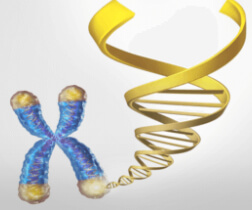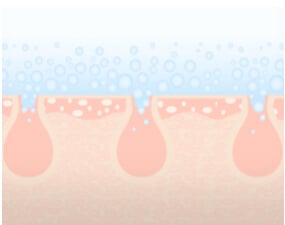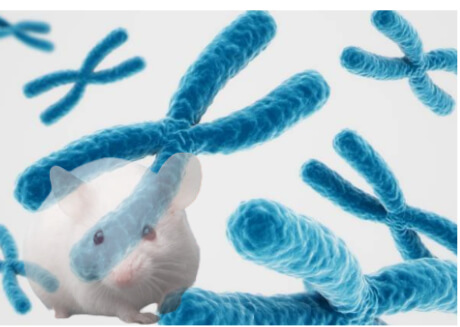Biologists agree that three main components of aging include a biological component (the genes of the organism), lifestyle (diet, smoking, exercise, etc.), and the environment in which the organism lives in. These three components are closely linked and can affect each other and, therefore, the rate of aging. A recent paper published this month in the journal of Cell Metabolism illustrates this relationship by studying a disease that causes accelerated aging (Cell Metabolism, Dec 5, Vol 6 page 738). Certain genetic mutations can cause accelerated aging, and this is most apparent in the extreme case where rare mutations of key genes lead to diseases collectively referred to as progeria or progeria-like diseases. When a child is inflicted with progeria, they develop many premature aging symptoms typically associated with the elderly. Some of the signs and symptoms developed are wrinkled skin, atherosclerosis, kidney failure, loss of eyesight, hair loss, and various cardiovascular problems. Besides humans, other animals also develop the same disease and are used as models to better understand the human version of the disease and to understand aging in general. The researchers used resveratrol to treat mice that also had a progeria-like disease in order to determine any effects on the accelerated aging symptoms. Amazingly, resveratrol was able to slow down the body weight loss and improve the bone structure and mineral density of the afflicted rodents. But more importantly, resveratrol was able to significantly extend the life span of the mice. The researchers go on to determine that the mechanism for how resveratrol imparts these benefits involves activation of Sirtuin1 and suggest a stem cell-based therapeutic strategy for treating progeria. This study has a lot of promise for those inflicted with the disease, and although we cannot change the card we are dealt in terms of the genes that we inherit, it is nevertheless gratifying to know that it is possible to modulate our aging rate by what we do in terms of our diet. [1]
References:
- https://www.sciencedirect.com/science/article/pii/S1550413112004603








